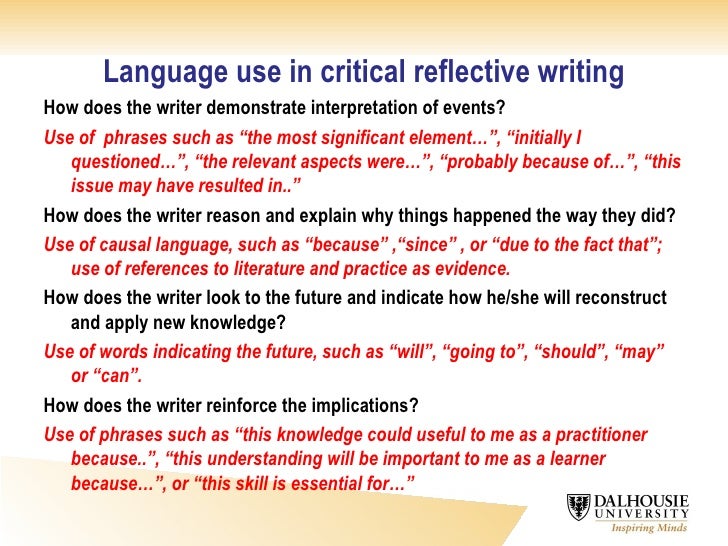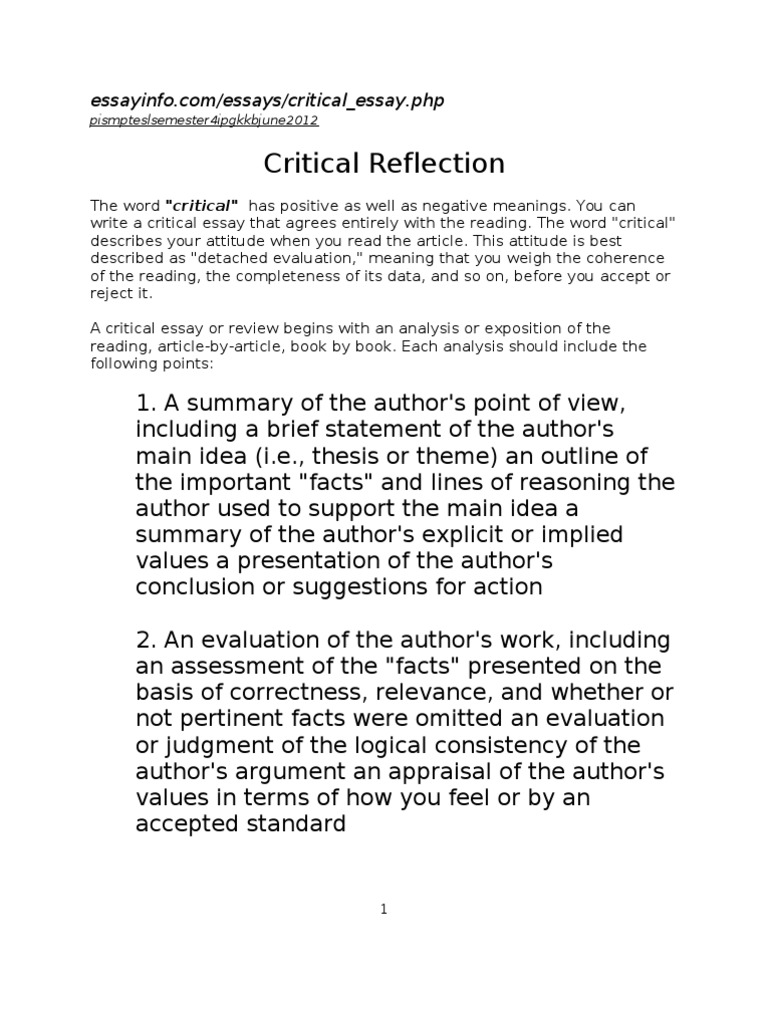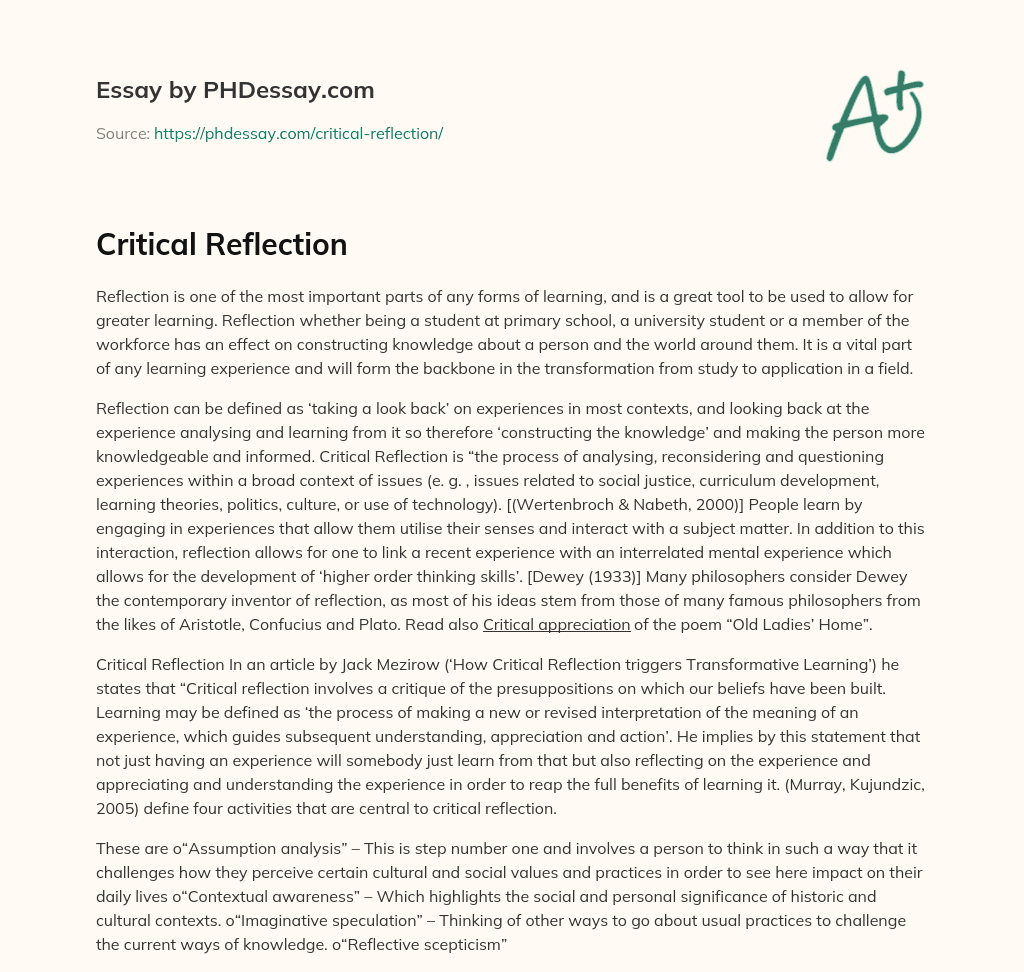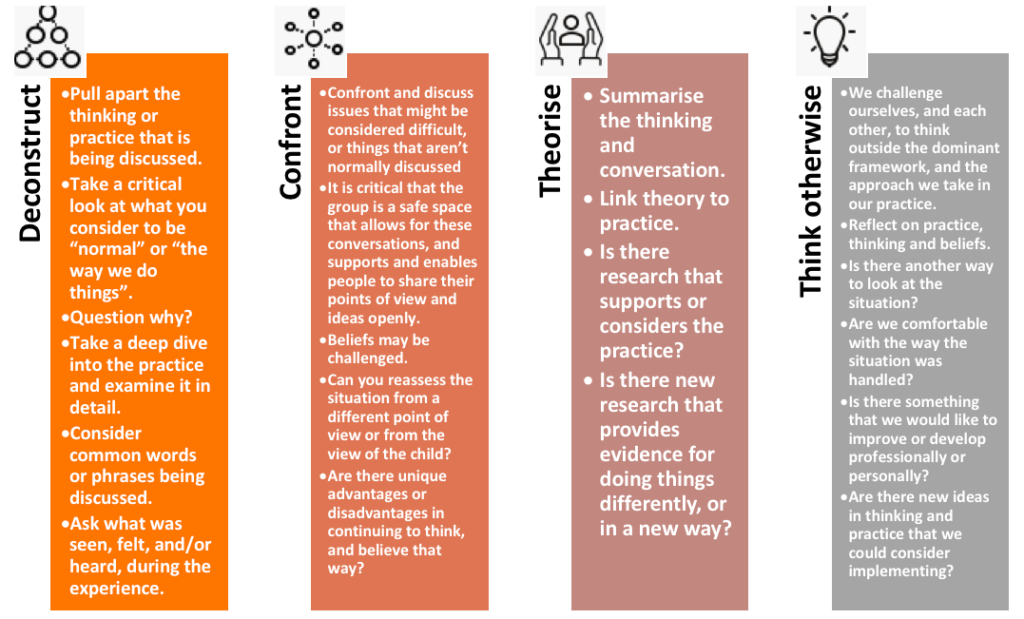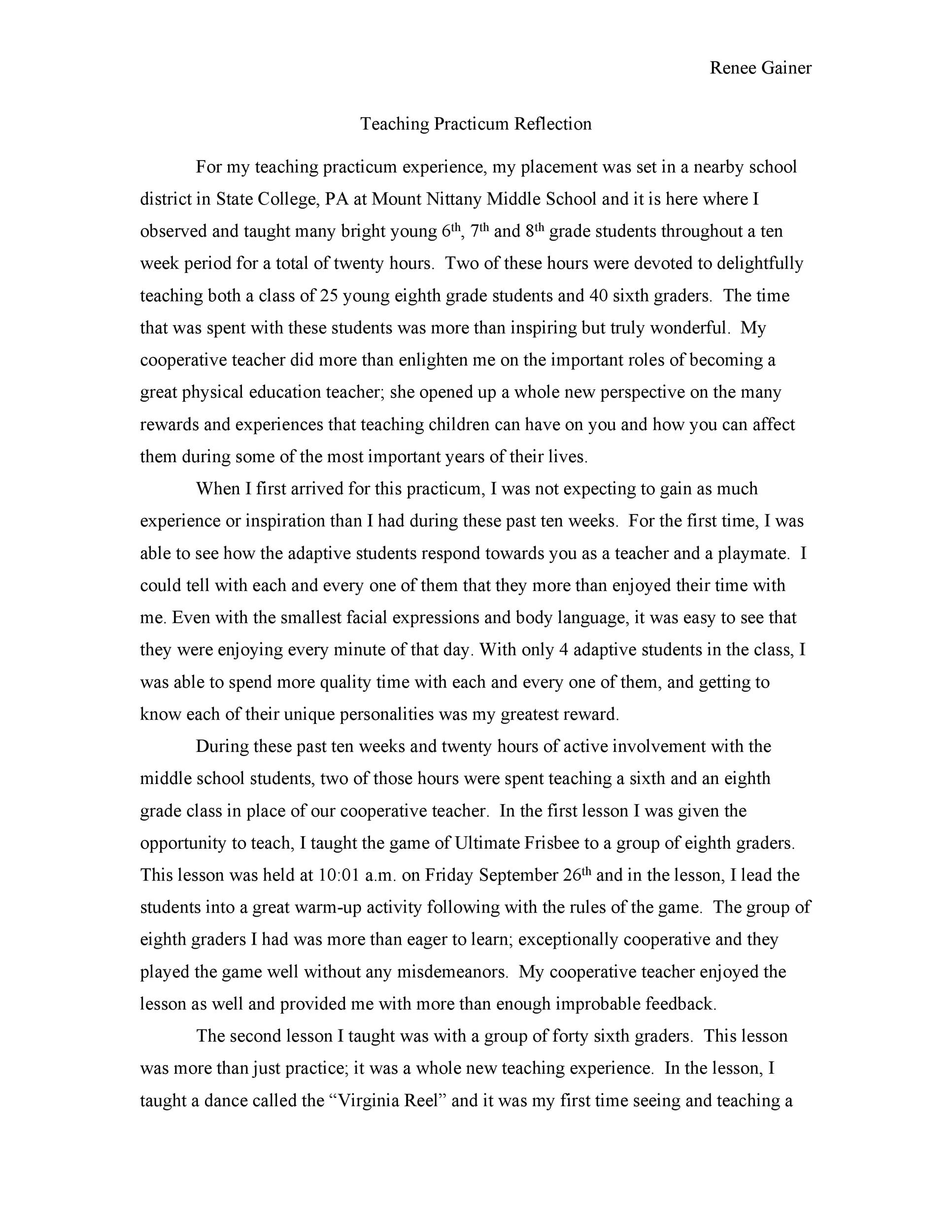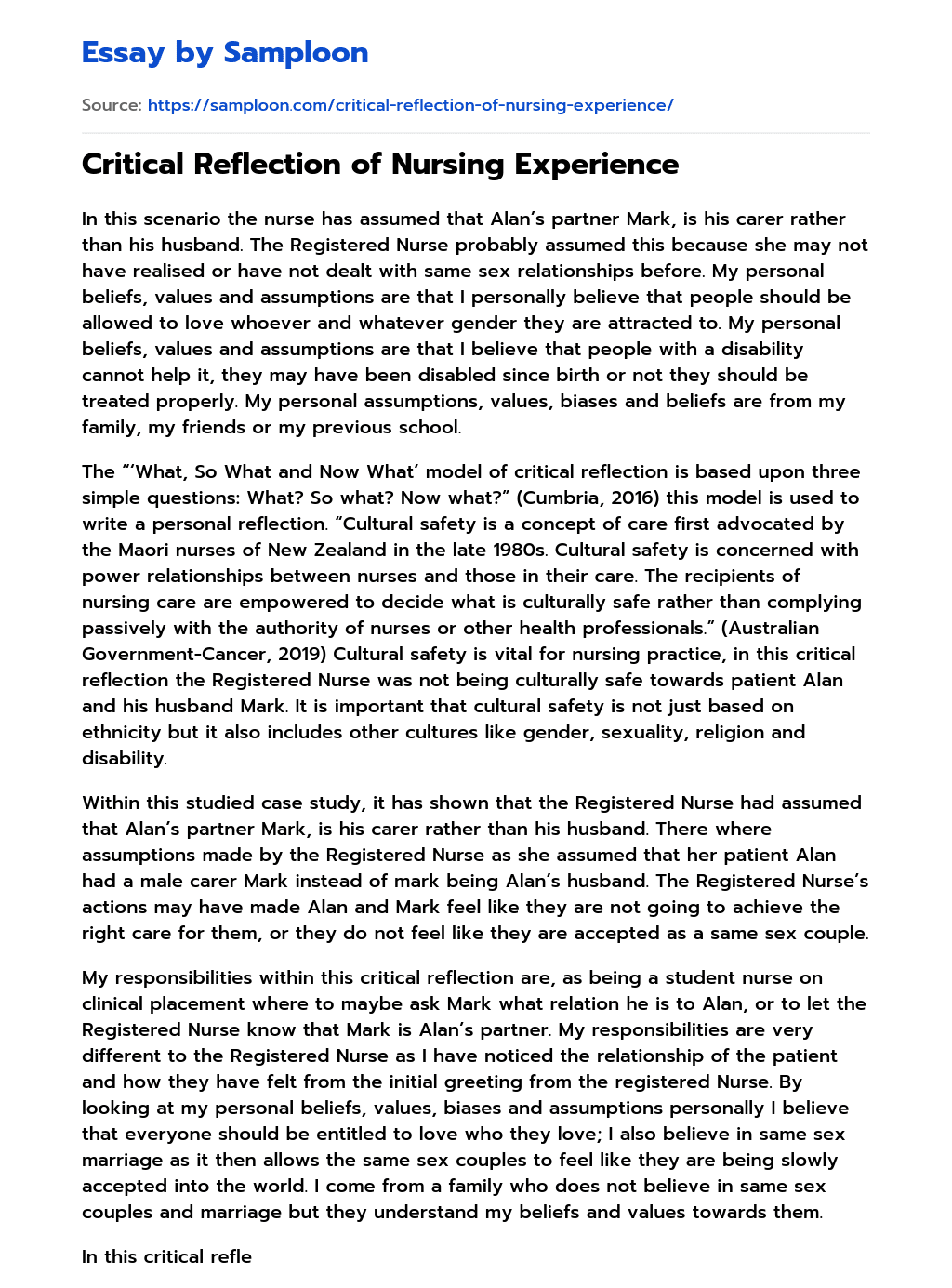Ace Tips About How To Write Critical Reflection

Describe the event (what, when, where, who?) 2.
How to write critical reflection. Stick around until the end of our guide to get some useful writing tips from the writing team at. In the first phase, analyze the issue and your role by asking critical questions. This helps you to develop new insights and perspectives which can inform your future.
The diagram above, details how to stucture your. In critical reflective writing you need to: Learn how to produce effective academic reflections that evidence your learning and development.
A 'processing' phase where thinking and learning take place. For a critical reflection, based on specific ‘events’ (or possibly ‘critical incidents’): Writing a critical reflection happens in two phases.
Writing reflectively involves critically analysing an experience, recording how it has impacted you and what you plan to do with your new knowledge. How to critically reflect. Relate the experience to your previous knowledge or personal.
To write a reflection paper, you need to be. Prompts for reflective writing. Here is what you need to know about writing an effective critical reflection paper.
Writing your critical reflection. Find out what the assessor is expecting, how to structure. How to write a reflection paper.
A commonly used structure for reflective writing is the 4 rs. To put it very simply, critical reflection for educators is ‘thinking about why we do the things that we do’. In this article, our essay writer.
Your reflective essay should include a description of the experience/literature piece as well as explanations of your thoughts, feelings, and reactions. Through such thinking, educators can gather information. Do you know how to write a reflection statement?
Explain why you reacted as you did. Your critical reflection is an argument for the impact your project has made at multiple levels; There are 3 steps to the critical reflection process.
A focus on personal growth: A type of reflective essay often used by. The events, experiences or interactions you choose to critically reflect on can be either positive or negative.
